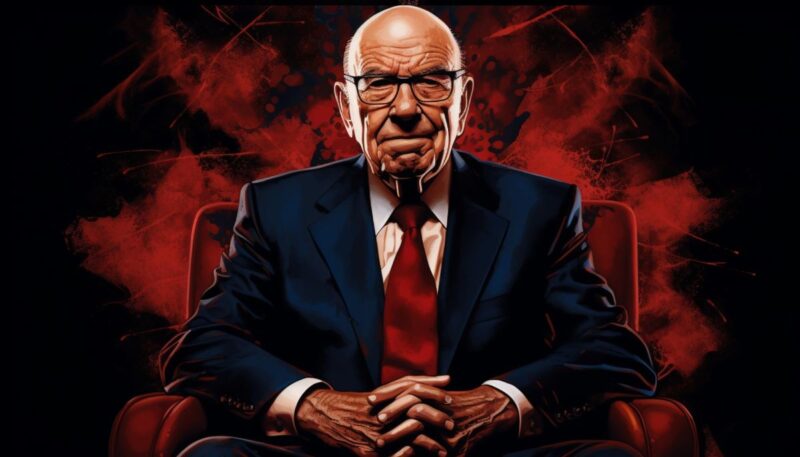
At 92 years of age, Rupert Murdoch has finally decided to step back, transitioning to Chairman Emeritus at Fox and News Corp. Many would consider such a moment as the end of an era, an opportunity for reflection on a storied, albeit controversial, career that has deeply influenced media landscapes and political spheres alike.
But, it would be perilously naïve to assume that the waves Murdoch set in motion have ceased merely because he’s decided to take his hands off the wheel. The ripples of his legacy are inextricable, bound to affect generations to come, and often in ways that cast long, unsettling shadows over the fundamentals of democracy itself.
Murdoch’s Empire: An Architecture of Division
Rupert Murdoch isn’t just a man; he is an institution, a media empire whose tendrils snake through nations, enveloping political ecosystems in a spectral haze of partisan fervor. By co-founding Fox News in 1996, alongside Republican political strategist Roger Ailes, he aimed to counterbalance what he considered an overly liberal U.S. media. This endeavor didn’t just give conservatives a platform; it galvanized a base, fomenting radicalization and pushing the GOP towards increasingly extremist ideologies. There’s no denying that Fox News has played an indispensable role in the political landscape, shaping the Republican Party’s image and influencing politicians eager to court its immense viewership. In this theatre of political machinations, Murdoch’s network has acted less like a spectator and more like a puppeteer, pulling strings that have resulted in consequential, sometimes dire outcomes.
The Pandora’s Box of Donald Trump
Even though Murdoch reportedly disapproved of Donald Trump’s ascension, his media empire essentially lit the fuse for Trump’s political fireworks. Through regular segments on “Fox & Friends,” Trump comprehended the pulse of the GOP base, using the platform as a stepping stone toward the Republican nomination and eventually the presidency. In a cruel irony, Murdoch found himself in a quagmire; Trump had snatched away the loyalty of Fox’s audience, jeopardizing the network’s profitability. As a result, Murdoch began to navigate Trump’s sphere, even offering him advice to preserve his media empire’s commercial interests. This symbiotic relationship had real-world consequences—contributing to the corrosion of U.S. institutions, coarsening political discourse, and perpetuating a strain of populist authoritarianism that continues to threaten democratic norms.
The Cost of Indifference
It’s tempting to dismiss Murdoch’s influence as the byproduct of an ambitious businessman capitalizing on a ripe political climate. However, that would be to ignore the calculative indifference exhibited by him, especially when it came to perpetuating false election fraud claims during the tumultuous 2020 presidential election. This was not mere oversight but a conscious choice that emboldened a wave of disinformation, ultimately culminating in the January 6th insurrection at the U.S. Capitol. The aftermath saw Murdoch paying a hefty $787.5 million settlement with Dominion Voting Systems, a minor toll compared to the societal cost—the degradation of faith in democratic institutions.
A Troubling Legacy and an Uncertain Future
While Murdoch hopes that the Republican Party will move on from Trump, his network’s audience remains steadfastly loyal to the former president, making it difficult for other GOP candidates to gain traction. Murdoch might have unleashed forces he can no longer control, rendering his wish for a “pivot” all but a pipe dream. Whether he likes it or not, Murdoch’s Frankenstein—today’s GOP—is wreaking havoc on the American landscape, a political behemoth fueled by years of incendiary media coverage and divisive rhetoric.
In Conclusion: Murdoch’s Immutable Mark
Even as he steps away from the helm, Rupert Murdoch leaves behind a media landscape profoundly and indelibly marked by his actions. His influence reverberates far beyond his immediate empire, affecting media ethics, political discourse, and even the trajectory of democracy itself. As we ponder the future in a world where he occupies a less active role, we must grapple with the sobering reality that his legacy is not one that can be easily undone. The repercussions of his empire are set in stone; they form part of a disconcerting narrative that will continue to unfold, shaping public opinion and political outcomes for years, if not decades, to come.
